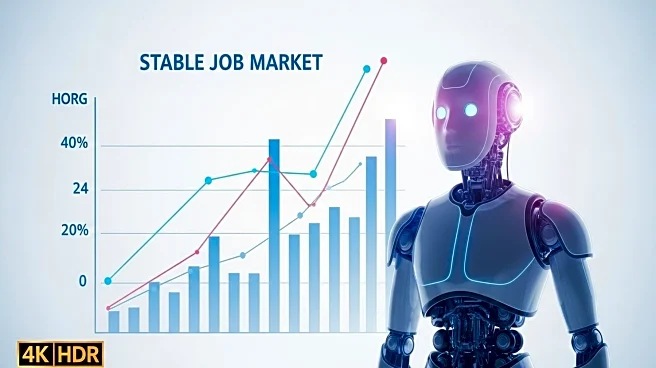What's Happening?
A study by Yale's Budget Lab has found that the introduction of generative AI, such as ChatGPT, has not significantly disrupted the U.S. labor market. Despite concerns from AI company leaders about potential job losses, the study indicates that there has been no discernible impact on employment since the release of these AI models. The research counters narratives suggesting that AI automation is eroding cognitive labor demand. While some companies have cited AI in their layoff decisions, the study suggests these actions are more related to cost-cutting and outsourcing rather than direct AI replacement.
Why It's Important?
The findings challenge the widespread fear that AI will lead to massive job losses, providing a more nuanced understanding of AI's current impact on employment. This could influence public perception and policy discussions around AI and automation. The study suggests that while AI may change certain job functions, it has not yet resulted in significant job displacement. This insight is crucial for policymakers and businesses as they navigate the integration of AI technologies and consider future workforce strategies.
Beyond the Headlines
The study highlights the importance of distinguishing between AI's potential and actual impact on jobs. It suggests that fears of AI-driven unemployment may be overstated, at least in the short term. This could lead to a reevaluation of how AI is discussed in public and policy forums, emphasizing the need for evidence-based approaches to understanding AI's role in the economy. The findings also underscore the potential for AI to complement rather than replace human labor, which could shape future workforce development and training initiatives.










